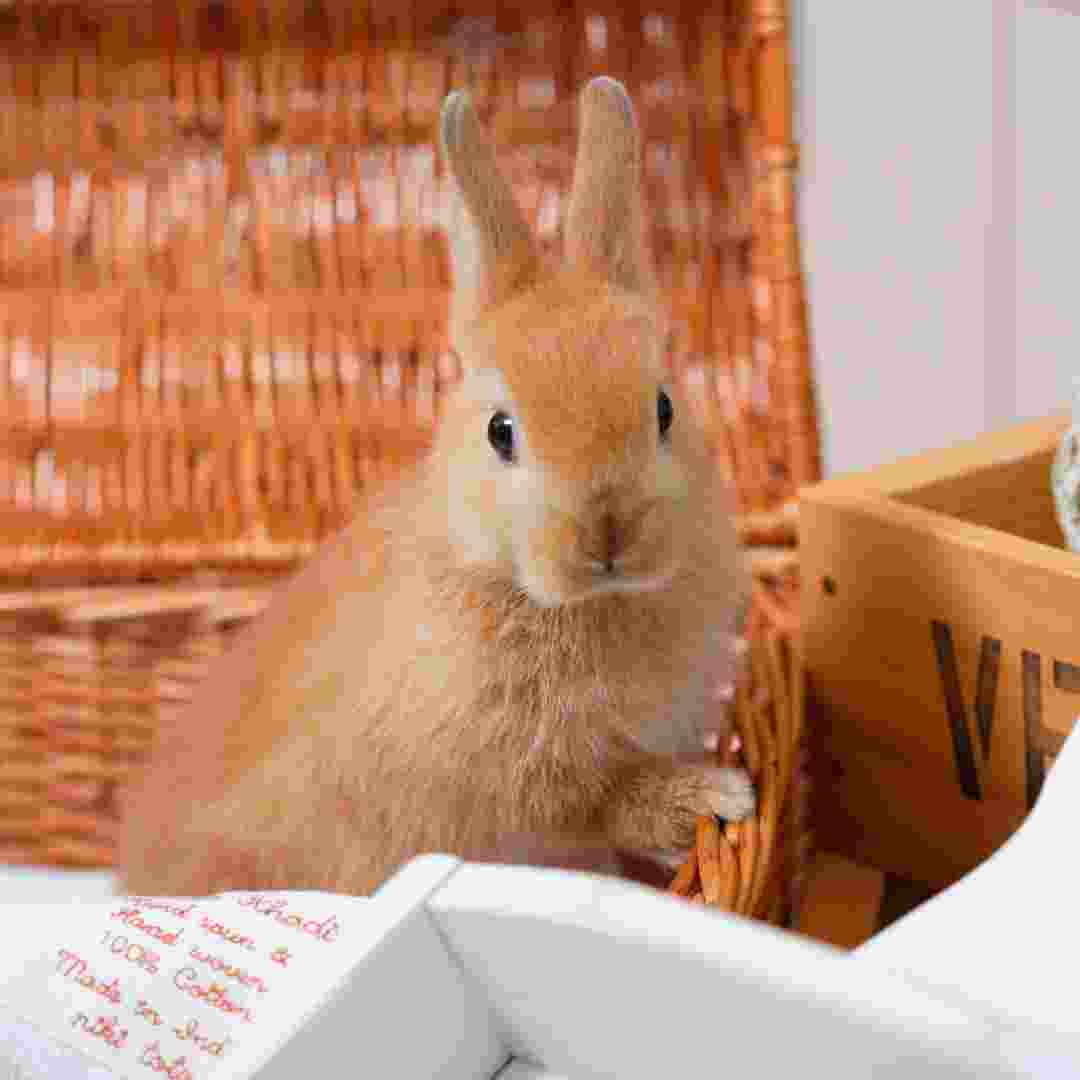Contents Table
Introduction
How to Pick a Family Rabbit Breed
Making Your Rabbit's Home Safe and Comfortable
Feeding Your Rabbit: A Nutrition Guide
Rabbit Handling and Bonding
How to Recognise and Treat Rabbit Illness
Q&A
Conclusion
Introduction
Rabbit care is essential for rabbit owners. Social animals like rabbits need daily attention to stay healthy and happy. A safe, comfortable home, a balanced diet, and frequent veterinary treatment are essential for rabbit care. Rabbits are great pets with proper care. Housing, food, and health care for rabbits are covered in this guide.
How to Pick a Family Rabbit Breed
Selecting a family rabbit breed can be tough. With so many breeds to pick from, consider your family's needs and the breed's traits before choosing.
Selecting a rabbit breed requires consideration of its size. The Flemish Giant needs more space than the Netherland Dwarf, which is suited for small families. Some breeds are more active than others, so consider how much time and energy your family can dedicate to the rabbit.
Breed temperament is also essential. The Mini Lop is soft and sociable, whereas the Lionhead is independent and distant. Choose a breed that fits your family's lifestyle and personality.
Finally, breed cost matters. The Dutch are cheap, whereas the Angora is pricey. Choose a breed within your budget.
You may choose the best rabbit breed for your family by considering size, temperament, and cost. Your family can enjoy years of friendship and joy with the correct breed.
Making Your Rabbit's Home Safe and Comfortable
Your rabbit needs a safe and comfortable home to stay healthy. Social rabbits need lots of area to play and explore. Create a safe and comfortable home for your rabbit with these tips.
1. Give a big enclosure. Rabbits require lots of room to roam. Your rabbit needs a large enclosure to hop, jump, and play. Make the enclosure escape-proof and lid-secure.
2. Provide comfy bedding. Bunnies need a warm place to sleep. Use soft, absorbent bedding like shredded paper or hay. Avoid cedar or pine shavings, which might damage your rabbit's lungs.
3. Offer lots of toys and enrichment. Healthy and happy rabbits need lots of stimulus. Give your rabbit lots of tunnels, boxes, and chew toys.
4. Secure the surroundings. Keep your rabbit's enclosure away from predators and hazards.
5. Feed well. Healthy eating is vital for rabbits. Feed your rabbit hay, fresh veggies, and a few pellets.
You can provide your rabbit a secure and comfortable home by following these guidelines. Your rabbit will be happy and healthy for years with proper care.
Feeding Your Rabbit: A Nutrition Guide
Rabbits are cute pets, but they need a special diet to keep healthy. Proper nutrition helps rabbits maintain a healthy weight, strong bones, and shiny coat. This tutorial will explain what to feed your rabbit and how to ensure proper nourishment.
As herbivores, rabbits should eat mostly hay, fresh vegetables, and a few pellets. Fiber-rich hay should be your rabbit's main food to support their digestive function. Timothy, oat, and meadow hay are good. Daily vegetables should contain dark leafy greens like kale, spinach, and romaine lettuce. Carrots, celery, and bell peppers are also options. Small amounts of pellets are recommended because they are high in calories and can cause obesity.
In addition to hay, veggies, and pellets, rabbits need fresh water. Daily water changes and bowl cleaning are recommended.
Some foods are hazardous to rabbits, so investigate new foods before feeding them. Onions, garlic, and rhubarb all induce digestive issues, so avoid them.
These suggestions will guarantee your rabbit gets the nutrition it needs to keep healthy and happy. Your rabbit will flourish on a balanced diet, fresh hay, veggies, and water.
Rabbit Handling and Bonding
Rabbits are kind and smart, making good pets. If you want a rabbit, you need know how to care for and bond with it.
Remember that rabbits are sensitive and can easily be hurt if handled improperly. Hold your rabbit's hindquarters and chest to pick it up. Gentle raise and hold close to body. Never grab your rabbit by the ears or neck.
To bond with your rabbit, remember that they are sociable animals and need constant interaction. Pet and talk to your rabbit daily. Rewards for good behaviour include sweets.
Rabbits need lots of exercise. Allow your rabbit to run and play in a large, safe enclosure. You can play with your bunny outside under supervision.
Finally, remember that rabbits are prey and easily frightened. Gentle, soothing voice and slow movement around your bunny. Give your nervous bunny time to adjust to you and their new habitat.
Follow these guidelines to keep your rabbit happy and healthy and bond with your new pet.
How to Recognise and Treat Rabbit Illness
Rabbits are lovely pets but susceptible to sickness. To keep your rabbit healthy, you must know the signs of disease.
Changes in behaviour, appetite, and appearance are the most prevalent indicators of rabbit disease. If your rabbit has any of these symptoms, take it to the vet immediately.
Lethargy, aggressiveness, and routine changes are behavioural changes. If your rabbit is acting strangely or aggressively, take them to the clinic.
Changes in appetite can indicate illness. Take your rabbit to the vet if they aren't eating or interested in their food.
Weight reduction, fur texture, and eye and nose colour are examples of physical alterations. Visit the vet if you detect any of these changes in your rabbit.
Also watch for changes in your rabbit's droppings. Take your rabbit to the vet if its droppings are runny or unusually coloured.
If your rabbit exhibits any of these symptoms, take it to the vet immediately. Your doctor can detect and treat any underlying issues to get your rabbit back to normal.

Q&A
Rabbits require what to keep healthy?
A1: Rabbits need hay, fresh vegetables, and low pellet intake. They need exercise, a clean home, and regular vet visits.
Q2: Clean my rabbit's cage how often?
A2: Clean your rabbit's cage weekly. Spot-clean messes daily.
How much exercise does my rabbit need?
A3: Rabbits need daily exercise of 1 hour. Playing with toys or running about in a safe location are examples.
What should I feed my rabbit?
A4: Give your rabbit hay, fresh veggies, and a few pellets. Limit sweets and sugary foods for your rabbit.
Q5: How often should I vet my rabbit?
Your rabbit needs a checkup at the vet once a year. If your rabbit seems sick or injured, take it to the clinic.
Conclusion
Rabbit care is a serious commitment. Your rabbit needs a safe, comfortable home, a balanced diet, regular exercise, and lots of love and attention. Additionally, regular vet visits are necessary to monitor your rabbit's health. Rabbits can live long and happy lives with proper care.
